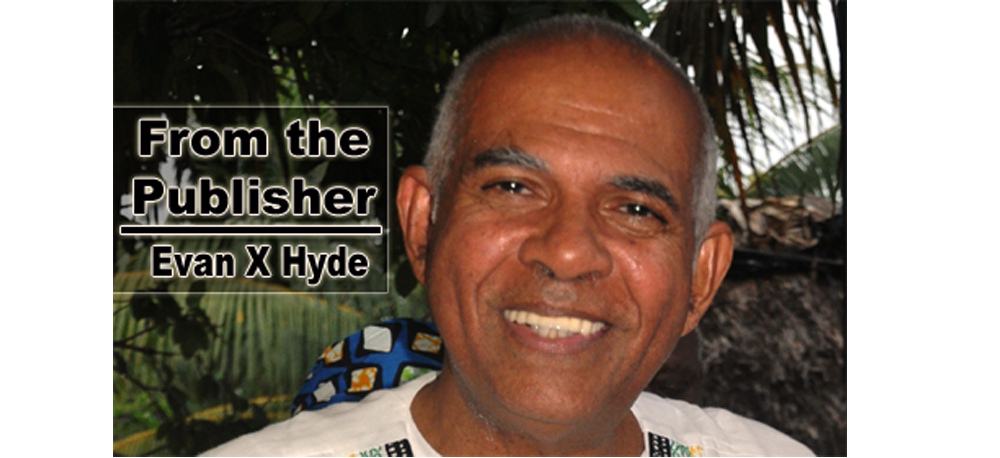I never studied American history, so that it was not until yesterday, beloved, that an unknown television academic on cable enlightened me as to the fact that the 1812 War between Great Britain and the United States was an attempt by the British to re-colonize the Americans, who had won a revolutionary war in 1776 to enable their independence from the said British.
Incidentally, Britain itself was once a colony ruled by the Romans, people like Julius Caesar who had travelled northwards across Europe from Italy and crossed the English Channel. I think this would have been around the time of Christ. We know for sure that Judea, Christ’s birthplace, was ruled by the Romans at the time of his birth two thousand years ago.
Nine years after winning the 1812 War, the Americans declared the Monroe Doctrine, which essentially said that in the future they would not allow any European power to set up shop in the Western Hemisphere, which they were declaring their own.
Now Spain, which had been the superpower in the Western Hemisphere after Columbus, an Italian financed by Spain, “discovered” the New World in 1492, had been experiencing all kinds of problems in the beginning of the nineteenth century, because Napoleon Bonaparte of France had conquered the Spanish (and most of Europe) and placed one of his brothers on the Spanish throne. So, this is where the Mexican priest Hidalgo enters the picture in 1810, because he led a fight to free Mexico from Spanish rule.
In Central America, all the republics we know today, such as the antagonistic Guatemala, also began a fight to free themselves from Spain, whereas in the northern part of South America, Simon Bolivar was seeking to do the same for what we know today as Bolivia, Colombia, Venezuela, Peru, and so on.
The Central Americans and Mexico declared their independence from Spain in 1823, and a few years later the Central Americans began fighting among themselves, the conservative forces being led by Guatemala and Rafael Carrera, and the liberals by Honduras/Salvador and Francisco Morazan.
Britain freed its African slaves in Belize in 1838, and Carrera and the Guatemalans won the war in Central America around 1839, 1840. Guatemala became the United States’ most important ally in Central America. The Americans pushed the British out of Nicaragua and Honduras (the Bay Islands), but allowed them to remain in British Honduras. These developments took place through the Clayton-Bulwer and Dallas-Clarendon treaties between 1850 and 1856, and then in 1859, the Americans brokered a border treaty between Carrera’s Guatemala and the British in Belize.
In the latter part of the 1930s, the Guatemalans, under President Jorge Ubico, rejected the treaty their predecessors had signed with the British, who were about to enter war with Adolf Hitler’s Nazi Germany in 1939.
The Americans did not become Britain’s allies in that “World War II” until December of 1941, when the Japanese, German allies, attacked the American naval base at Pearl Harbor.
After World War II (1939-1945), when my generation was born, Guatemala began to become more aggressive, from time to time, with their claim to British Honduras (Belize). The Americans were quite silent where the exchanges between the Guatemalans and the British were concerned, until 1962, when they hosted a conference in Puerto Rico for the British and the Guatemalans to discuss Belize.
In 1966, the Americans appointed an attorney, Bethuel Webster, to mediate the dispute. He officially released his “Seventeen Proposals” in 1968, at a time when Belize, which was granted self-government by the British in 1964, was supposed to move on quickly to political independence. The Guatemalans were locked in a bloody civil war in 1968. Belizeans immediately and violently rejected the Seventeen Proposals.
Today, Guatemala and Belize are about to enter arbitration to resolve the claim/border dispute by means of the International Court of Justice (ICJ). The dispute has been complicated since 1991 by the belief that huge amounts of valuable minerals, including petroleum, exist in the sea where Guatemalan and Belizean waters meet. This does not include those mineral and oil deposits in the land mass of Toledo, Belize’s southernmost district, which may have been discovered decades before the Maritime Areas Act of 1991.
As children/youth growing up in Belize in the 1950s and 1960s, we knew nothing about these minerals and this petroleum. Our mindset, then, was basically similar to that of the other British possessions in the Caribbean. No one claimed them or threatened to invade them. In Belize, the British were protecting us, until the 1970s. But, we Belizeans wanted political independence, because we had been largely exploited and abused by the British.
So now we face the ICJ. This was a proposition pushed by nations who referred to themselves as “friends of Belize.” I cannot escape the feeling, however, that those of us Belizeans who have given up our country to go to America may be in a better place than the rest of us, those of us who have no idea what the ICJ has up its sleeve. Belize is not in a good place. There are too many uncertainties surrounding us.

